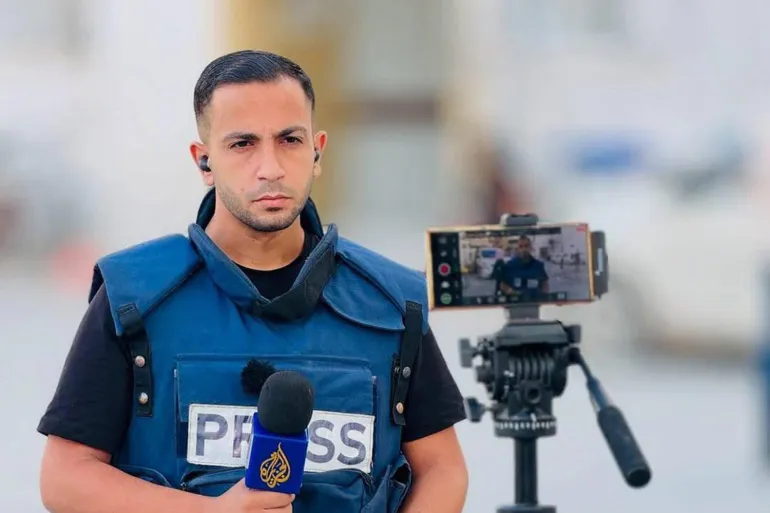In Gaza, the battle is no longer confined to missiles and ground operations, it has become a war on truth itself. As journalists are killed in airstrikes and detainees speak of systematic torture, the Israeli government’s assault extends beyond military targets to those who bear witness.
On 11 August, an Israeli airstrike near al-Shifa Hospital killed five journalists, including Al Jazeera correspondent Anas al-Sharif, correspondent Mohammed Qreiqeh, video journalists Ibrahim Zaher, Moamen Aliwa, and Mohammed Noufal, freelance reporter Mohammed al-Khaldi.
Israeli officials who have a routine habit of playing judge, jury and executioner accused al-Sharif of being linked to Hamas, but no evidence was presented.
For his colleagues and press freedom advocates, the claim rang hollow. Al Jazeera called it a deliberate attack on the press. UN officials condemned the strike as a violation of international law.
UN spokesperson Stephane Dujarric also added that at least 242 journalists have been killed in Gaza since the war began, a staggering number. For context, a total of 69 journalists were killed in WWII and 63 in the Vietnam war both of which lasted several years.
The regional director of Committee to Protect Journalists (CPJ) also described the Israeli strike that killed killed several Al Jazeera staff in Gaza as “100% a war crime”.
The loss is part of a growing pattern. Gaza has become one of the deadliest places in the world for reporters. Each death narrows the window into the war, erasing witnesses who could hold all sides accountable. When the messengers are silenced, the message is left to those with the most power and the least interest in scrutiny.
Away from the bomb sites, another, less visible war is being fought inside detention camps. Former detainees describe beatings, stress positions, deprivation of food and medicine, and humiliations designed to break the spirit. Facilities like Sde Teiman have become synonymous with abuse. Human rights monitors warn that such treatment amounts to systematic torture, not isolated misconduct.
Some accounts from Gaza City’s hospital sieges are even more chilling. Witnesses speaking to the Middle East Eye alleged that civilians were executed after arrest, actions that, if proven, would constitute extrajudicial killings. These claims add to a growing dossier of Israel’s war crimes that international bodies have been slow, or unwilling, to fully investigate.
The Israeli government frames its campaign as a fight for security. Yet the cumulative effect of targeting journalists and brutalizing detainees is to erode any claim to democratic principles. A state cannot credibly champion the rule of law while undermining the very institutions, a free press and the due process that sustain it. What Israel’s actions constitute in Gaza can only be described as a “War on Truth”.
For Gaza’s civilians, the cost is not just immediate suffering but the loss of a future in which truth might matter. Without reporters on the ground, atrocities risk disappearing into silence. Without justice for detainees, the cycle of abuse becomes self-perpetuating.
In the absence of accountability, these patterns will not stop on their own. They will deepen, normalize, and harden into policy. And when that happens, the world will not be able to say it did not know.

















